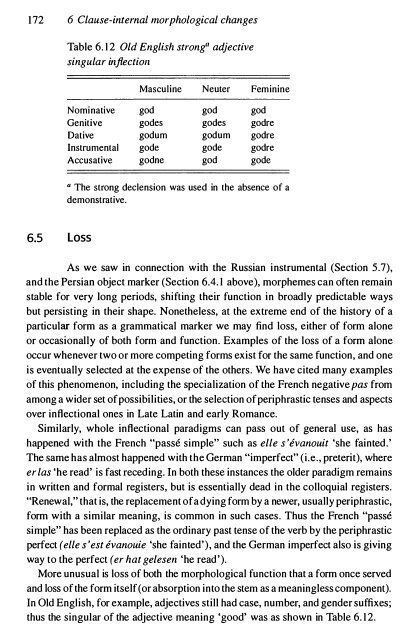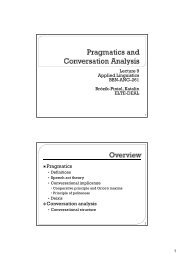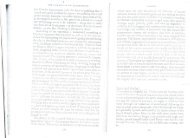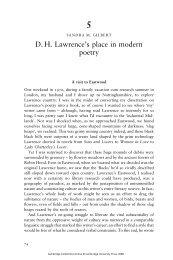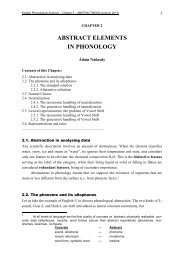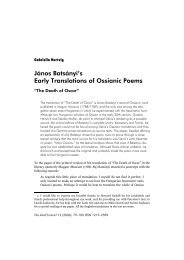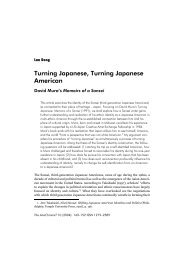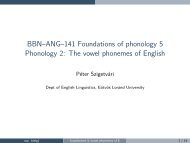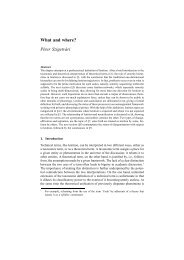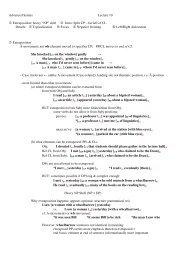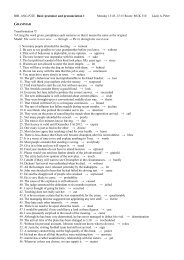Gram - SEAS
Gram - SEAS
Gram - SEAS
You also want an ePaper? Increase the reach of your titles
YUMPU automatically turns print PDFs into web optimized ePapers that Google loves.
172 6 Clause-internal morphological changes<br />
6.5 Loss<br />
Table 6. 12 Old English stronga adjective<br />
singular inflection<br />
Masculine Neuter Feminine<br />
Nominative god god god<br />
Genitive godes godes godre<br />
Dative godum godum godre<br />
Instrumental gode gode godre<br />
Accusative godne god gode<br />
a The strong declension was used in the absence of a<br />
demonstrative.<br />
As we saw in connection with the Russian instrumental (Section 5.7),<br />
and the Persian object marker (Section 6.4. 1 above), morphemes can often remain<br />
stable for very long periods, shifting their function in broadly predictable ways<br />
but persisting in their shape. Nonetheless, at the extreme end of the history of a<br />
particular form as a grammatical marker we may find loss, either of form alone<br />
or occasionally of both form and function. Examples of the loss of a form alone<br />
occur whenever two or more competing forms exist for the same function, and one<br />
is eventually selected at the expense of the others. We have cited many examples<br />
of this phenomenon, including the specialization of the French negative pas from<br />
among a wider set of possibilities, or the selection of periphrastic tenses and aspects<br />
over inflectional ones in Late Latin and early Romance.<br />
Similarly, whole inflectional paradigms can pass out of general use, as has<br />
happened with the French "passe simple" such as elle s'evanouit 'she fainted.'<br />
The same has almost happened with the German "imperfect" (i.e., preterit), where<br />
er las 'he read' is fast receding. In both these instances the older paradigm remains<br />
in written and formal registers, but is essentially dead in the colloquial registers.<br />
"Renewal," that is, the replacement ofa dying form by a newer, usually periphrastic,<br />
form with a similar meaning, is common in such cases. Thus the French "passe<br />
simple" has been replaced as the ordinary past tense of the verb by the periphrastic<br />
perfect (elle s'est evanouie 'she fainted'), and the German imperfect also is giving<br />
way to the perfect (er hat gelesen 'he read').<br />
More unusual is loss of both the morphological function that a form once served<br />
and loss of the form itself (or absorption into the stem as a meaningless component).<br />
In Old English, for example, adjectives still had case, number, and gender suffixes;<br />
thus the singular of the adjective meaning 'good' was as shown in Table 6.12.


